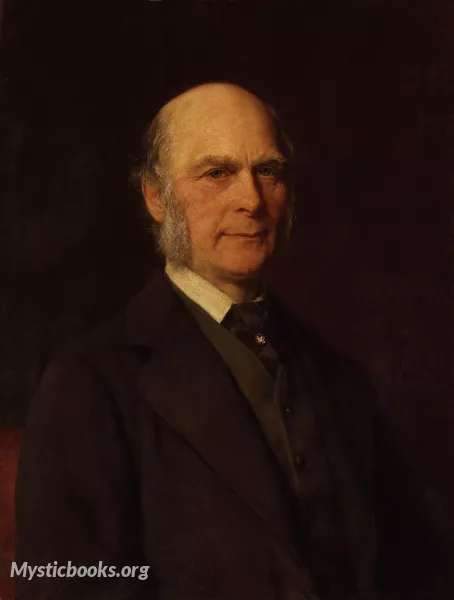
Timeline
Title
Country/Nationality
Sir Francis Galton
Sir Francis Galton (16 February 1822 – 17 January 1911) was a British polymath in the Victorian era. He was a proponent of social Darwinism, eugenics, and scientific racism. Galton was knighted in 1909.
Who was Sir Francis Galton?
Galton was born in Birmingham, England, to a wealthy family. He was a cousin of Charles Darwin, and he was inspired by Darwin's work on evolution to study human heredity. Galton coined the term "eugenics" to describe the science of improving the human race through selective breeding. He also developed the statistical concepts of correlation and regression, and he pioneered the use of fingerprinting for identification.
What were Sir Francis Galton's principles?
Galton believed that human abilities were inherited, and he advocated for the selective breeding of "superior" individuals in order to improve the human race. He also believed that there were significant differences between different races, and he argued that some races were inherently superior to others.
What was Sir Francis Galton famous for?
Galton was famous for his work on human heredity, eugenics, and scientific racism. He was also a pioneer in the use of statistics and fingerprinting. His work had a significant impact on the development of these fields, and it continues to be debated today.
What were Sir Francis Galton's notable works?
Galton's notable works include:
- Hereditary Genius (1869): This book is Galton's most famous work. It argues that human abilities are inherited, and it proposes a number of ways to improve the human race through selective breeding.
- Natural Inheritance (1889): This book further develops Galton's ideas on heredity. It also discusses the importance of environment in shaping human abilities.
- Finger Prints (1892): This book is Galton's first book on fingerprinting. It argues that fingerprints are unique to each individual, and it proposes the use of fingerprints for identification.
What was Sir Francis Galton's philosophy?
Galton's philosophy was based on the belief that human abilities are inherited. He believed that it was possible to improve the human race through selective breeding, and he advocated for the creation of a "race of supermen." Galton also believed that there were significant differences between different races, and he argued that some races were inherently superior to others.
When did Sir Francis Galton die and how is he remembered?
Galton died in 1911 at the age of 88. He is remembered as a controversial figure, but he is also considered to be one of the most important figures in the history of statistics and eugenics. His work continues to be debated today, and it has had a significant impact on the development of these fields.
Books by Sir Francis Galton

Hereditary Genius
Hereditary Genius is a groundbreaking book that argues that human abilities are inherited. It is considered to be the founding text of the field of eugenics. The book begins with a hook: "Inquiries into the laws of inheritance in the case of man." G...

Art of Travel
A practical guide to adventure travel in the Victorian era, covering everything from planning an expedition to dealing with hostile natives. Galton provides detailed advice on choosing equipment, selecting a bivouac, hunting for game, and navigating...

English Men of Science: Their Nature and Nurture
This book, originally published in 1874, explores the question of nature versus nurture, focusing on the lives of prominent English scientists and their contributions to society. Sir Francis Galton, a pioneering statistician and cousin of Charles Dar...

Inquiries into Human Faculty and its Development
Sir Francis Galton's "Inquiries into Human Faculty and its Development" is a pioneering work in the field of biometrics and human psychology. The book explores various aspects of human abilities and characteristics, examining their heritability, meas...